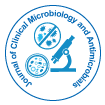

Xiu-Ling Wang
Epidemiologic as well as laboratory studies have shown that dietary soy isoflavones can exert multiple biological activities, including anticarcinogenic, antimutagenic and reduced risk of cardiovascular disease and potential protective role for osteoporosis and menopausal symptoms. Soy isoflavones are mainly composed of genistein and daidzein and undergo extensive metabolism in the intestinal tract prior to absorption. There has been growing interest in the microbial metabolites of soy isoflavones due to their wider or stronger bioactivities. To date, numerous particular bacteria responsible for isoflavone metabolism have been isolated and identified. However, all the reported isoflavone metabolizing bacteria are obligate anaerobes, which lack the ability to grow and convert isoflavones aerobically. After a long-term domestication, we obtained several oxygen-tolerant bacteria, which not only grew aerobically but also convert soy isoflavones to different metabolites in the presence of atmospheric oxygen. The obtained oxygen tolerant mutant strains differed from the original obligate anaerobic bacterial strains by various characteristics, including change in bacterial shape, in biochemical traits, etc. Enhanced production of the soy isoflavone metabolites by the oxygen-tolerant mutant strains was investigated. Moreover, our results demonstrated that equol, one metabolite of soy isoflavone daidzein, induced apoptosis in human hepatocellular carcinoma through the intrinsic pathway and the endoplasmic reticulum stress pathway. 5-hydroxy-equol, one metabolite of soy isoflavone genistein, significantly enhanced the lifespan and stress resistance of Caenorhabditis elegans.